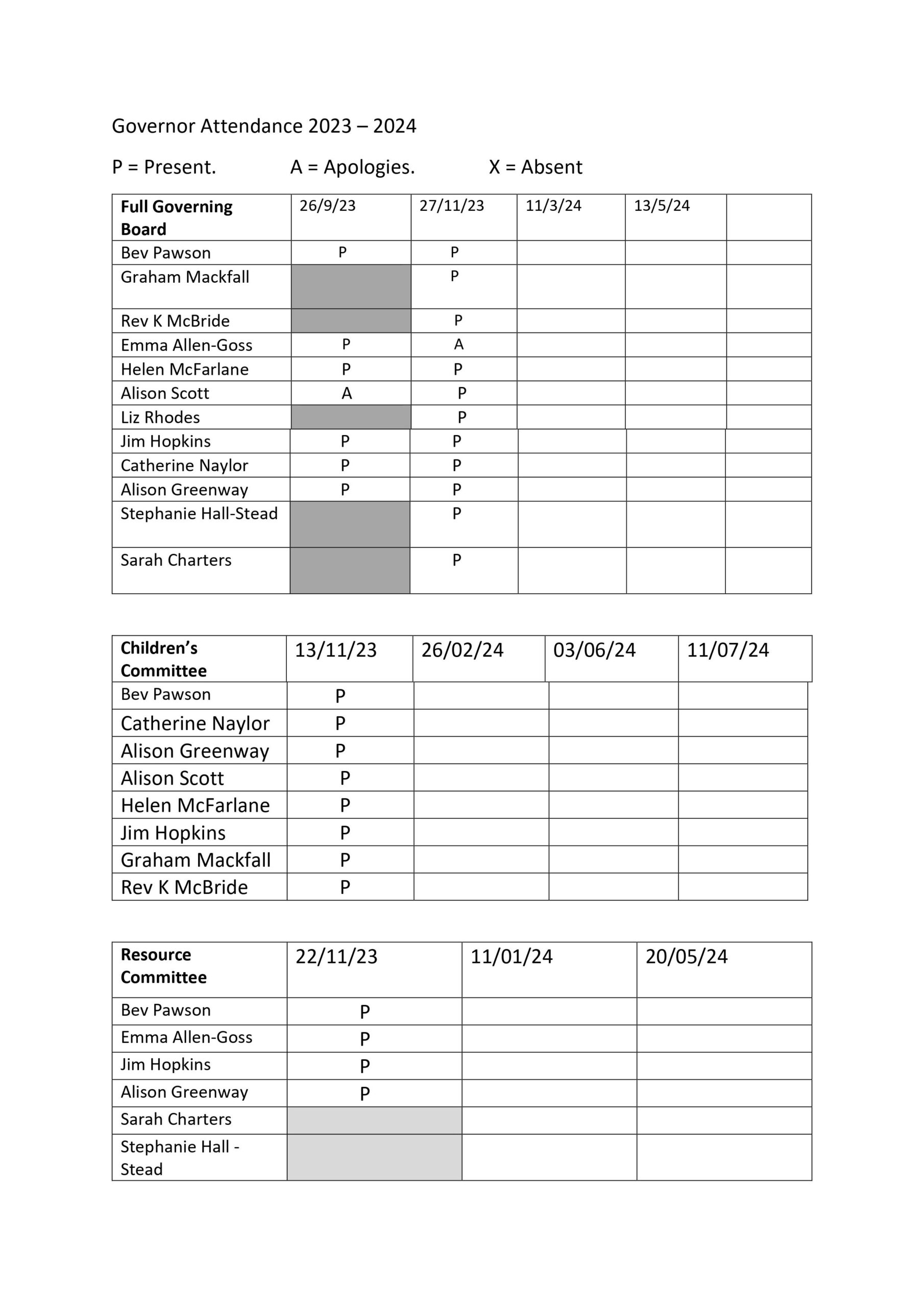Governors
What does being a School Governor involve?
(Taken from National Governors’ Association’s Code of Practice for School Governors 2012/13)
The governing body is the school’s accountable body. It is responsible for the conduct of the school and for promoting high standards. The governing body aims to ensure that children are attending a successful school which provides them with a good education and supports their well-being.
The governing body:
Appoints and performance manages the headteacher:
- who will deliver the aims through the day to day management of the school, implementation of the agreed policy framework and school improvement strategy, and delivery of the curriculum; and report appropriately to the governing body.
Sets the strategic direction of the school by:
- Setting the values, aims and objectives for the school
- Agreeing the policy framework for achieving those aims and objectives
- Agreeing the school improvement strategy which includes approving the budget and agreeing the staffing structure
Challenges and supports the school by monitoring, reviewing and evaluating:
- The implementation and effectiveness of the policy framework
- The implementation and effectiveness of the school improvement strategy
- The budget and the staffing structure
Ensures accountability by:
- signing off the school’s own self-evaluation report
- responding to Ofsted reports when necessary
- holding the headteacher to account for the performance of the school
- ensuring parents and pupils are involved, consulted and informed as appropriate
- making available information to the community
Governors:
- Should understand the purpose of the governing body and the role of the headteacher as set out above.
- Should be committed to actively supporting and challenging the headteacher.
- Should acknowledge that accepting office as a governor involves the commitment of significant amounts of time and energy, and each involve themselves actively in the work of the governing body, and accept their fair share of responsibilities, including service on committees or working groups.
- Should make full efforts to attend all meetings and where they cannot attend, explain in advance in full why they are unable to.
- Should consider seriously their individual and collective needs for training and development, and undertake relevant training
- Should encourage open government and act appropriately.
- Should accept collective responsibility for all decisions made by the governing body or its delegated agents. This means they should not speak against majority decisions outside the governing body meeting.
- Should always be mindful of their responsibility to maintain and develop the ethos and reputation of the school, and actions within the school and the local community should reflect this.
- Should accept that they have no legal authority to act individually, except when the governing body has given them delegated authority to do so, and therefore only speak on behalf of the governing body when they have been specifically authorised to do so.
- Should act fairly and without prejudice, and in so far as they have responsibility for staff, they should fulfil all that is expected of a good employer.
- Should follow the procedures established by the governing body in making or responding to criticism or complaints affecting the school.
Resources Committee
The Resources Committee meets termly to discuss all aspects of Finance, Premises and Health and Safety. The committee often meets with Fiona Robinson. NYCC Principal Financial Management Services Officer.
Children’s Committee
The Children’s Committee meets termly to discuss all aspects of the curriculum and safeguarding.
Both committees report back to the Full Governing Body. See below for committee membership.
Governing Body Details
Register of Interests
| Name | Category | Term of office starts | Term of office ends | Committees and other responsibilities as governors |
Business and pecuniary interests
|
|||||
| Bev Pawson | Head teacher | 1/09/17 | Ex Officio |
Children’s Committee Resources Committee |
None | |||||
| Alison Scott | Parent Governor | 15/3/23 | 14/03/27 | Children’s Committee | None | |||||
| Liz Rhodes | Parent Governor | 27/11/23 | 26/11/27 | Children’s Committee | None | |||||
| Helen McFarlane | Local Authority | 31/03/22 | 30/03/26 | Children’s Committee (Chair) | None | |||||
| Jim Hopkins | Co –opted | 9/12/19 |
Children’s Committee Resources Committee |
None | ||||||
| Catherine Naylor | Co-opted | 26/09/23 | 25/09/27 | Children’s Committee | None | |||||
| Alison Greenway | Co-opted | 24/11/21 | 23/11/24 |
Chair of governors Children’s Committee Resources Commitee |
None | |||||
| Stephanie Hall – Stead | Co-opted | 27/11/23 | 26/11/26 | Resources Committee | None | |||||
| Sarah Charters | Co-opted | 27/11/23 | 26/11/26 | Resources Committee | None | |||||
| Graham Mackfall | Teacher | 26/09/23 | 25/09/27 | Children’s Committee | None | |||||
| Rev Katharine McBride | Foundation | Ex Officio | Ex Officio | Children’s Committee | None | |||||
| Emma Allen-Goss | Foundation | Ex Officio | Resources Committee | None | ||||||
Business and pecuniary interests* – details of any other establishments governed and relationships between governors and members of school staff

